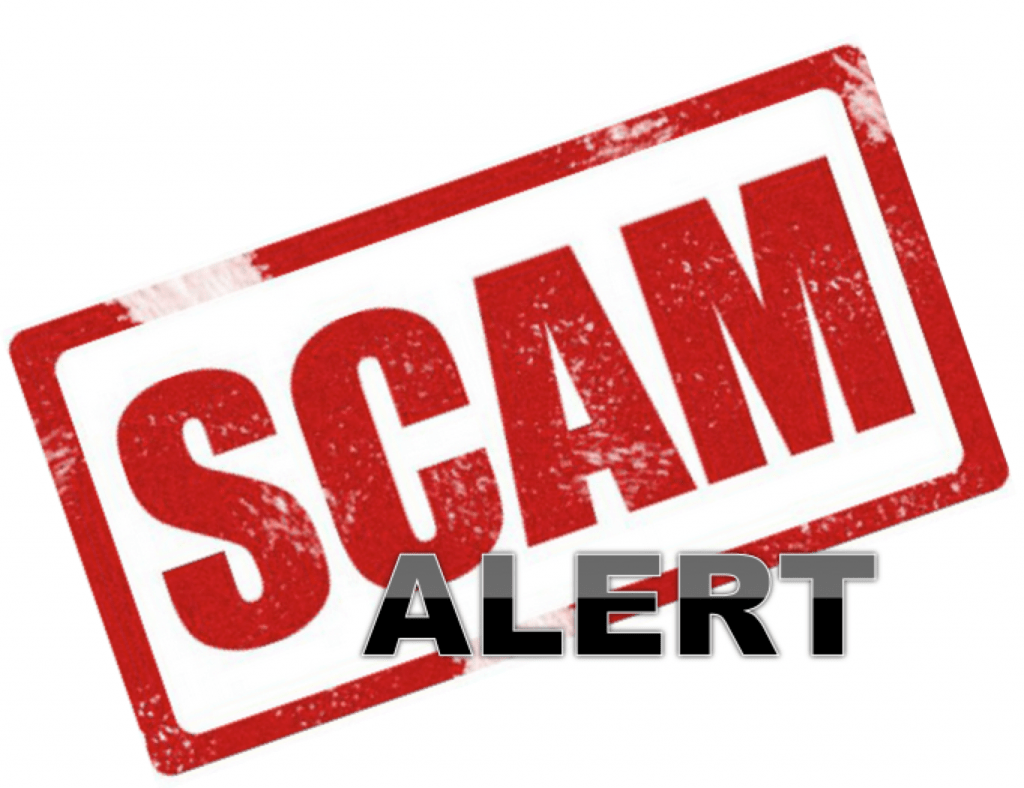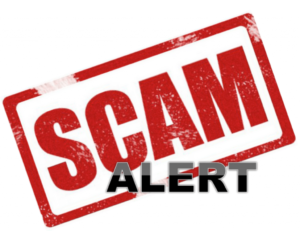
Crooks impersonating the IRS either by phone, email, or in-person cost people their time and money. The IRS urges people to stay vigilant against schemes and scams and avoid becoming a victim.
Here are some important tips for taxpayers to keep in mind to avoid scams:
How the IRS initiates contact
The IRS initiates most contacts with taxpayers through regular mail delivered by the U.S. Postal Service. However, there are special circumstances in which the IRS will call or come to a home or business, such as:
- When a taxpayer has an overdue tax bill,
- To secure a delinquent tax return or a delinquent employment tax payment, or
- To tour a business, for example, as part of an audit or during criminal investigations.
Even then, taxpayers will generally first receive a letter or sometimes more than one letter, often called notices, from the IRS in the mail.
Avoid telephone scams
Criminals impersonate IRS employees and call taxpayers in aggressive and sophisticated ways. Imposters claim to be IRS employees and sound very convincing. They use fake names and phony IRS identification badge numbers. They’re demanding and threatening – and do not reflect how the IRS handles enforcement matters.
Note that the IRS does not:
- Demand that people use a specific payment method, such as a prepaid debit card, gift card or wire transfer. The IRS will not ask for debit or credit card numbers over the phone. For people who owe taxes, make payments to the U.S. Treasury or review IRS.gov/payments for IRS online options.
- Demand immediate tax payment. Normal correspondence begins with a letter in the mail and taxpayers can appeal or question what they owe. All taxpayers are advised to know their rights as a taxpayer.
- Threaten to bring in local police, immigration officers or other law enforcement agencies to arrest people for not paying. The IRS also cannot revoke a license or immigration status. Threats like these are common tactics scam artists use to trick victims into believing their schemes.
IRS employees may make official, unannounced visits
IRS employees may make official and sometimes unannounced visits to discuss taxes owed or returns due as a part of an audit or investigation. Taxpayers generally will first receive a letter or notice from the IRS in the mail. If a taxpayer has an outstanding federal tax debt, IRS will request full payment but will provide a range of payment options.
Here are the facts:
- All IRS representatives will always provide their official credentials, called a pocket commission and a HSPD-12 card. The HSPD-12 card is a government-wide standard form of reliable identification for federal employees and contractors. Taxpayers have the right to see these credentials. IRS employees can provide an additional method to verify their identification. Upon request, they’re able to provide a toll-free employee verification telephone number.
- Collection employees won’t demand immediate payment to a source other than “U.S. Treasury.”
- IRS employees may call taxpayers to set up appointments or discuss audits but not without first attempting to notify taxpayers by mail.
- IRS employees conducting criminal investigations are federal law enforcement agents and will never demand money.
Find more information about Criminal Investigation and how to know it’s really the IRS calling or knocking on doors for audits and collection on IRS.gov.
Avoid email, phishing and malware schemes
Scammers send emails that trick businesses and taxpayers into thinking the messages are official communications from the IRS or others in the tax industry. As part of phishing schemes, scammers sometimes ask taxpayers about a wide-range of topics, such as refunds, filing status, confirming personal information, ordering transcripts and verifying personal identification numbers.
The IRS does not use email, text messages or social media to discuss tax debts or refunds with taxpayers.
Calls from IRS-contracted private collection agencies
The IRS assigns certain overdue tax debts to private debt collection agencies or PCAs. Here are the facts about this program:
- The IRS will send a letter to the taxpayer letting them know the IRS has turned their case over to one of the four PCAs. The PCA will also send the taxpayer a letter confirming assignment of the taxpayer’s account to the agency.
- The IRS will assign a taxpayer’s account to only one of these agencies, never to all four. The IRS authorizes no other private groups to represent the IRS.
- It’s important to know that PCA representatives:
- Will identify themselves and will ask for payment to “U.S. Treasury,”
- Will not ask for payment on a prepaid debit or gift card, and
- Will not take enforcement action.
How to report scams
Taxpayers can use these options to report phone, email and other impersonation scams:
- Report impersonation scams to the Treasury Inspector General for Tax Administration. on the “IRS Impersonation Scam Reporting” webpage.
- Report phone scams to the Federal Trade Commission using the FTC Complaint Assistant. Add “IRS Telephone Scam” in the notes.
- Report an unsolicited email claiming to be from the IRS or an IRS-related system like the Electronic Federal Tax Payment System to the IRS at phishing@irs.gov.




